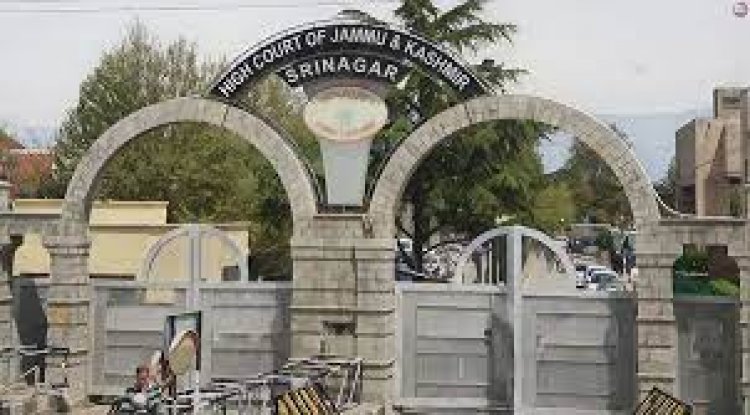Jammu and Kashmir: High Court draws a Red Line on defining ‘Terror’
Asia News Agency

Five Army personnel, including two captains of special forces, were killed in an encounter in Jammu and Kashmir’s Rajouri district that began Wednesday. Two terrorists, including a Lashkar-e-Taiba commander, were also killed in the gunfight. In April-May this year, the border districts of Poonch and Rajouri had witnessed two ambushes that claimed the lives of 10 soldiers. Increased terrorist activity in these districts has elicited a proportionately strong response from the security forces.
Overall, terror incidents have decreased
This year, The Tribune notes “at least 120 people, including more than 80 terrorists and over 25 security personnel, have been killed in militancy-related violence in J&K. Overall, violence has been on the decline in recent years — the number of terror incidents decreased from 417 in 2018 to 229 in 2021, while the death toll of security personnel dropped from 91 in 2018 to 42 in 2021. Nevertheless, stricter action is required to further bring down the numbers and create conditions conducive for resuming the electoral process.”
Targeting sympathisers of terrorists: The focus of the security forces and the J&K administration is not only on neutralising or nabbing terrorists “but also on cracking down on their sympathisers. Four government employees, including a doctor and a policeman, were sacked by the UT authorities on Wednesday for alleged terror links….The message is loud and clear: neither terrorists nor secessionists will be tolerated. Such a firm approach will help normalise the law and order situation, which, in turn, should lead to holding the long-delayed elections.”
Courts draw some much-needed red lines on defining ‘terror
Meanwhile, the Jammu and Kashmir High Court has drawn some much-needed red lines on defining ‘terror’. Granting bail to journalist Fahad Shah, and quashing charges framed against him under the Unlawful Activities (Prevention) Act, the court raised the bar for state action. It said that an investigative agency must justify the arrest of an accused under the UAPA, on the anvil of ‘clear and present danger of the accused to the society at large, if enlarged on bail’. It rejected police arguments that honour and dignity of India is a property under the anti-terror law, the destruction of which is a terrorist act — this argument, the court said, ‘would literally turn criminal law on its head… mean that any criticism of the central government can be described as a terrorist act because the honour of India is its incorporeal property… collide headlong with the fundamental right to freedom of speech and expression…’
The Indian Express refers to this as “a strike by the court for justice, democratic accountability and press freedom.”
Delhi High Court had drawn similar red lines
The court has gone to the heart of this matter before. In June 2021, in perhaps the first instance of a court underlining the state’s misuse of UAPA, three Delhi High Court orders granting bail to three student activists in a case connected to the 2020 Delhi riots, had drawn similar lines, asked similar questions. Terror activity cannot be so broadly defined as to include ordinary penal offences, ruled the court. Rejecting the broad interpretation of the terror clause by Delhi Police, including its blurring of lines between ‘intent to threaten the unity and integrity…’ and the ‘likelihood' to do so, the court cautioned that it is a ‘sacrosanct principle of interpretation of penal provisions’ that they be strictly and narrowly construed. ‘The extent and reach of terrorist activity must travel beyond the effect of an ordinary crime…’.
Supreme Court’s red lines
And in April this year, in the Media One case, which did not involve UAPA, but which featured a government citing an undisclosed national security consideration to deny renewal of license to a Malayalam news channel, the Supreme Court said that ‘… national security claims cannot be made out of thin air’. And flagged a disturbing trend: ‘the state is using national security as a tool to deny citizens remedies that are provided under the law. This is not compatible with the rule of law’.
Courts asking hard questions: In asking hard questions of the state, in pointing to the flimsiness of a case sought to be papered over by the harsh law, The Indian Express sates “the court has stepped up to the role and responsibility of the judiciary as the vital check against an overstepping state….”
















